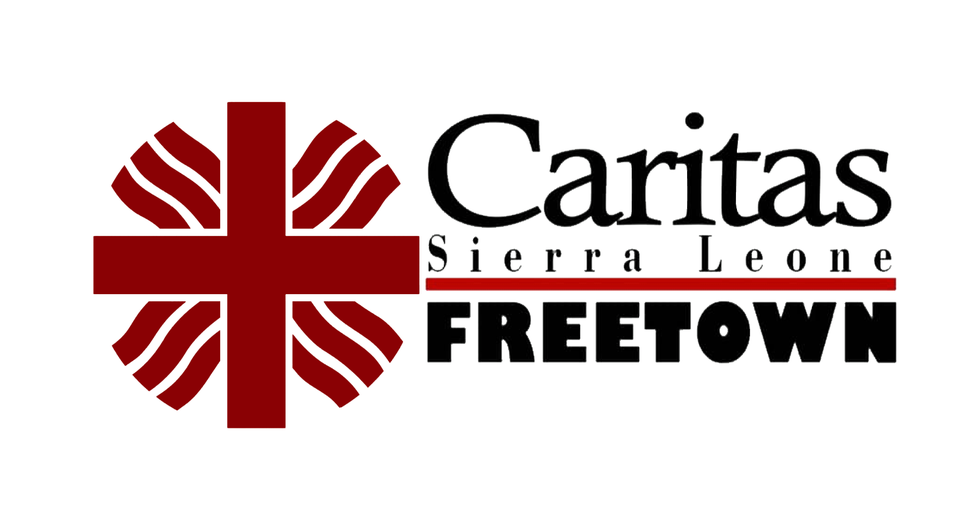Monkey Bush Youth and Young Women’s Group Hosted Jelena Zelenovic, United Nations Peace Building Fund Programs Manager
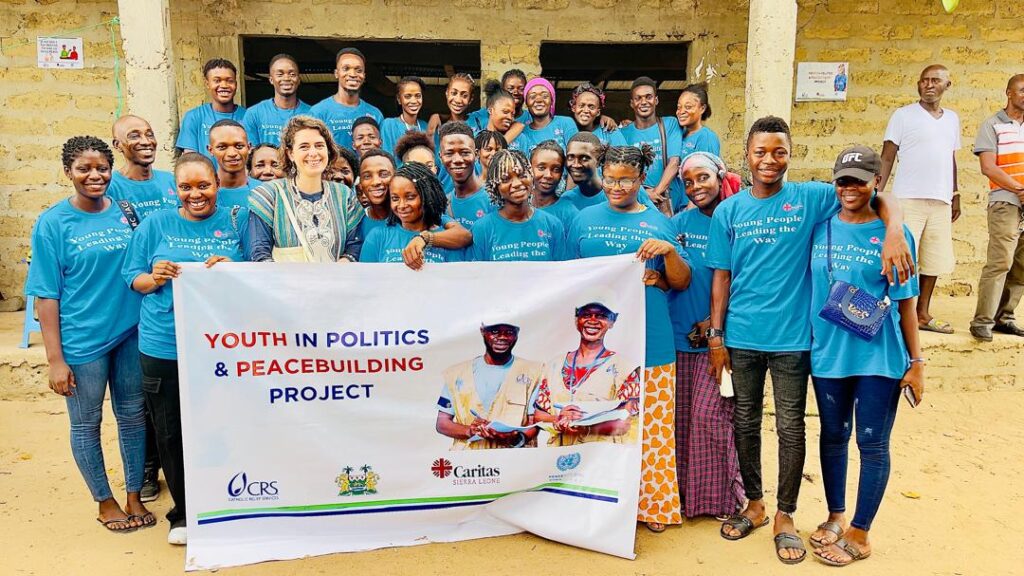
Youth and Young Women’s Group in Monkey Bush, one of the project’s targeted, communities in the Western Area Rural, hosted Jelena Zelenovic, Programs Manager at the United Nations Peacebuilding Fund. The purpose of her visit was to meet with the youth, women’s groups, stakeholders, and community members to hear about the project’s impact and its contribution to peaceful social cohesion. She began by expressing gratitude to the community for their warm welcome. Zelenovic highlighted that the UNPBF has been operating in Sierra Leone since 2008, collaborating with various NGOs including Caritas Sierra Leone and CRS. She emphasized her commitment to working with Caritas and CRS to promote peace and development in different communities in Sierra Leone. She mentioned that she had come to visit to meet with the youth and women and hear their testimonies on how the project has positively impacted their lives in the community. The meeting brought together stakeholders, representatives from the inter-religious council, the police, and various community youth groups in Monkey Bush. Community members provided testimonies about the project’s impact. Mr. Idriss IT Kamara, who contested for a Member of Parliament under the APC, mentioned that before the project’s intervention, the Monkey Bush community was known for violence, especially before and after elections. People from different political parties viewed each other as enemies. He shared his story about reconciling with a friend from a different political party during a peace football match organized by Caritas Freetown and CRS under the Peacebuilding project. Chief Alimmamy, the headman, noted that before the project intervention, the youth lacked respect for their elders. Since the project’s implementation, he has observed a positive change in their behavior, with the youth showing more respect to the elders and actively seeking their support for community activities. Mr. Sesay, a community member, mentioned that due to his son’s participation in the Peaceful Masculinity program, his son has started taking on household responsibilities traditionally performed by women. Additionally, his son’s attitude towards women has transformed positively. Mr Suliaman Bah from the inter-religious council said that they have been working in collaboration with Caritas and CRS to organize peaceful events over the years. Recently, the inter-religious council organized a project for peace at Kenema, Bo and Portloko. He further stated that the religious leaders have also been engaging youth and young women, and they are participating in the promotion of peace not only in politics but also in every form or kind of election. He stated that the main goal now is to sensitize the youth to abstain from violence after elections. The visit provided a firsthand experience of the project’s achievements and demonstrated how the community members have taken ownership of it. Overall, the gathering facilitated meaningful dialogue and cooperation, strengthening the collective commitment to sustainable peacebuilding and social development. After the meeting with the community people, Jelena Zelenovic also meets with CRS and Caritas Sierra Leone Freetown staff at CRS Head office to discuss relevant issues surrounding the project. United Nations Peacebuilding YouthInPolitics Youngpeopleleadingtheway
Training of trainers workshop on Leadership and Peace Education
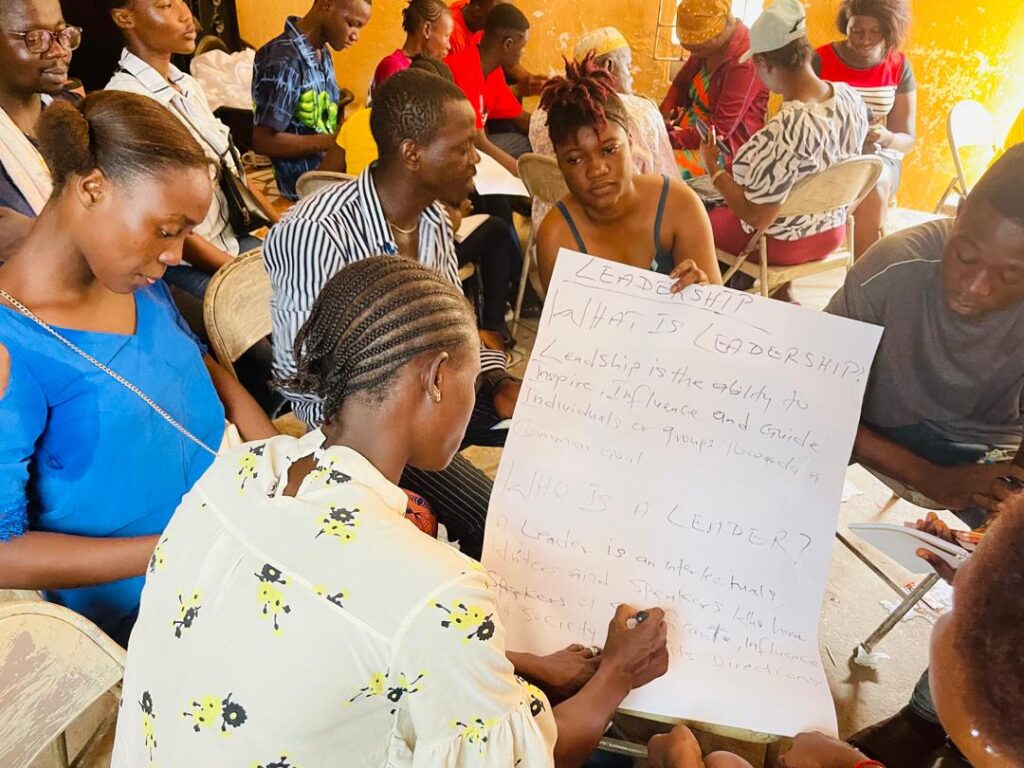
In a bid to put their newfound knowledge into action, young beneficiaries from Kolleh Town and Brookfields have taken up the mantle of training their peers following a rigorous two-day Training of Trainers (TOT) Workshop organized by Caritas Freetown. The workshop focused on Civic and Peace Education Training, aiming to equip participants with essential leadership skills and an understanding of civic responsibilities. Eliza Sillah, in providing an overview of the workshop, highlighted that the training encompassed leadership, civic education and peace-building concepts. Participants were furnished with a comprehensive manual to aid them in effectively disseminating the acquired knowledge to others in their communities. The primary objectives of the training included fostering an understanding of leadership dynamics, familiarizing participants with civic principles and elucidating the role of young people in democracy. She emphasized that the manual was meticulously crafted to guide Facilitators in conducting participatory workshops on leadership, civic education, and peace-building. Alisha Dumbuya, a Facilitator from the Brookfields Community, underscored the significance of imparting knowledge gained from the workshop to fellow youth. She noted that while their community had maintained peace, many lacked awareness of their civic rights and responsibilities, as well as criteria for selecting capable leaders. Similarly, Sama Pessima, another Facilitator from Kolleh Town, expressed optimism about spreading the acquired knowledge to a wider audience. He stressed the importance of empowering fellow youth with the skills necessary for constructive civic engagement. Alhaji Yellow Mansaray, a stakeholder from Brookfields, lauded the workshop for enlightening participants on leadership qualities and selection criteria. He pledged to serve as an ambassador, sharing the insights gained with others in the community. Mariatu Turay, a youth participant from Kolleh Town, expressed gratitude for the opportunity to learn about rights, responsibilities, and leadership criteria. She commended her peers for their dedication and thanked Caritas Freetown for facilitating the transformative training. The training sessions culminated in group activities and presentations, demonstrating participants’ understanding and commitment. They lauded Caritas Freetown for the timely initiative and expressed hope for continued collaboration in the future.
Community Engagement in Makorbeh Community Empowers Men and Boys on how to Combat Gender-Based Violence
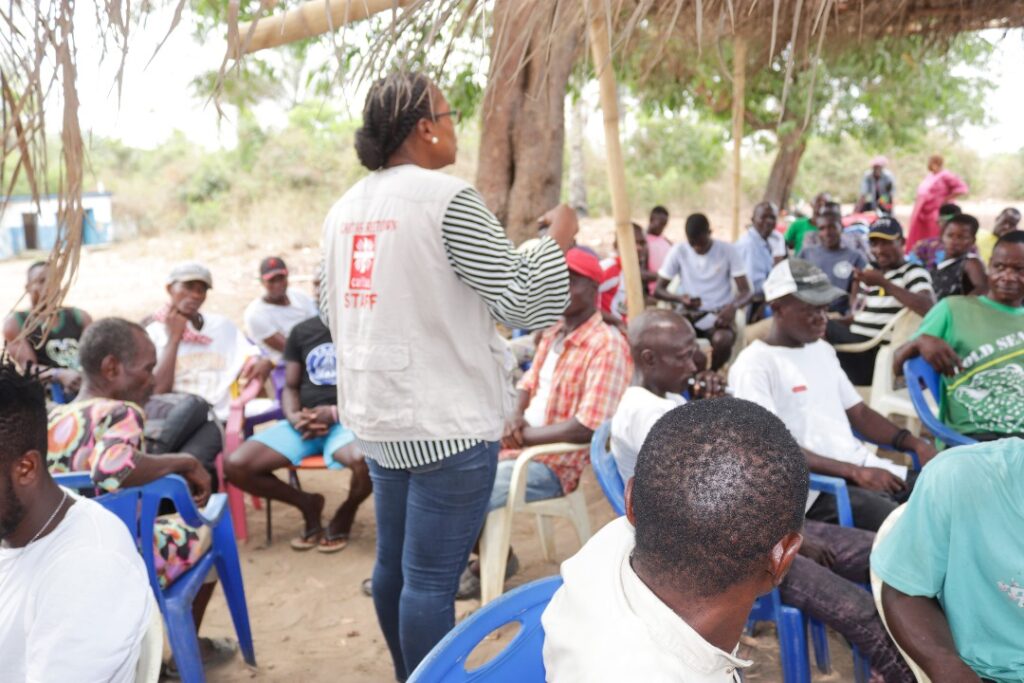
In a concerted effort to address Gender-Based Violence (GBV), a collaborative project titled “Strengthening Behavioral Change on SGBV Prevention; Promoting Access to Justice and Hygiene Education for Vulnerable Women and Girls in the Western Area Rural” convened an engaging session on April 19, 2024, in the Makorbeh community of Songo village, located in the Western Rural Area. In partnership with the Sierra Leone Police, Family Support Unit (FSU) and the Ministry of Gender and Children’s Affairs, alongside support from Manos Unidas, the project aimed to raise awareness among men and boys regarding their crucial roles in combatting SGBV at the grassroots level. The session commenced with an overview of the project’s objectives and a recap of previous sessions, during which participants showcased their application of knowledge gained. The Ministry of Gender and Childern’s Affairs representative, Mr. Ahmed Turay, underscored the Gender Equality and Women’s Empowerment (GEWE) Act, elucidating the ministry’s role in addressing SGBV issues, legal frameworks, available services, and referral pathways. Subsequently, the Caritas Freetown, Justice and Peace Commission facilitator, Mr. Andrew Kponeh, delved into discussions on challenging gender stereotypes and violence, fostering an interactive environment where participants posed questions, offered insights, and engaged with one another. The impact of community engagement was key as attendees expressed deep appreciation for the newfound awareness, pledging to uphold respect and love in their interactions with spouses and children. Community leaders and participants alike vowed to disseminate these essential messages to wider audiences, ensuring sustained progress in combating SGBV. In conclusion, the collaborative efforts of stakeholders underscored a significant step forward in empowering communities to tackle GBV effectively. By equipping men and boys with knowledge and fostering dialogue, initiatives like these are pivotal in fostering lasting behavioral change and promoting gender equality.
Caritas Sierra Leone Freetown, with funding from the UNPBF and in partnership with CRS, organized a two-day awareness raising session on April 11th and 12th, 2024.
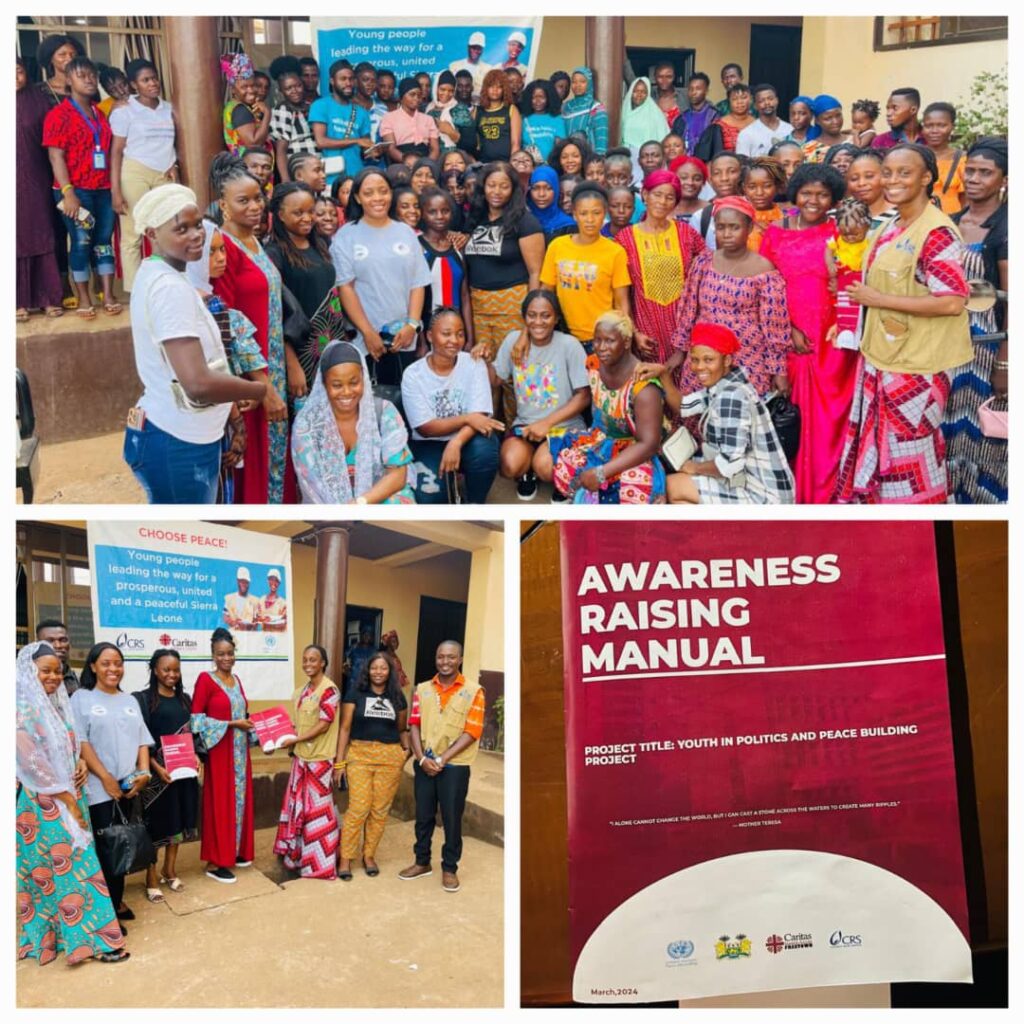
Caritas Sierra Leone Freetown, with funding from the UNPBF and in partnership with CRS, organized a two-day awareness raising session on April 11th and 12th, 2024. The session took place at the Western Area Rural District Council Hall in Waterloo and aimed to educate 200 participants from various project groups. The objectives included informing participants about laws protecting women’s rights, available support services for abused or violated women, promoting gender equality and empowerment, encouraging reporting of violence against women, and creating a supportive environment for accessing resources. L.A.W.Y.E.R.S. facilitated the sessions, with co-facilitation from the Ministry of Gender and Children’s Affairs, using their manual.
Sierra Leoneans Reflect on Independence Eve: Dreams and Aspirations for the Nation’s Future
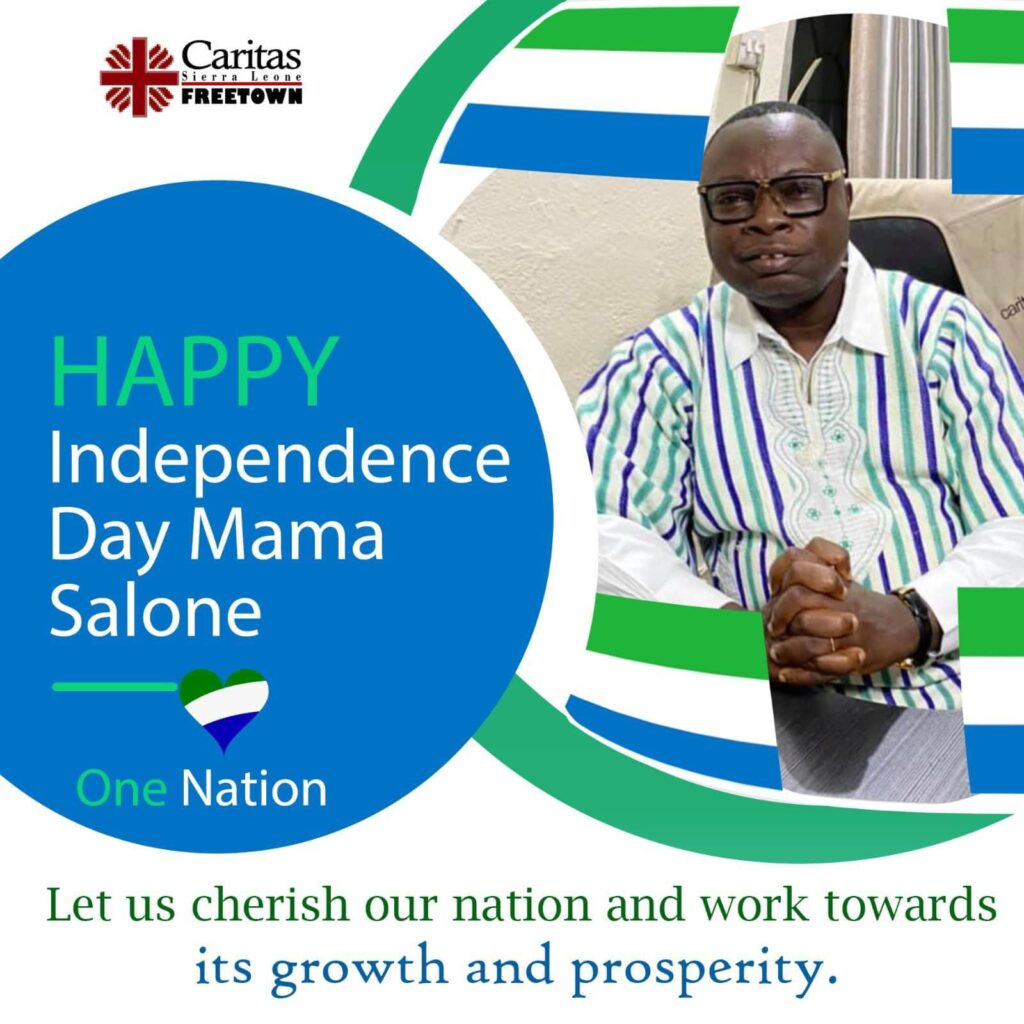
As Sierra Leone gears up to commemorate its 63rd independence anniversary, the eve of this significant day becomes a moment of prayer and profound reflection for its citizens, fostering hope and resilience in the face of challenges. Among the dreams, hopes, and expectations for Sierra Leone’s future, economic growth and development stand out prominently. Blessed with abundant natural resources such as minerals, forests, and fisheries, the nation grapples with the task of harnessing these riches to fuel sustainable economic progress. Aspirations include fostering a diverse and resilient economy that generates employment opportunities, alleviates poverty, and enhances the quality of life for all Sierra Leoneans. Additionally, the importance of good governance cannot be overstated. While strides have been made in enhancing governance practices, there remains a need for continuous improvement. The collective hope is for Sierra Leone to strengthen its institutions, ensuring transparency, accountability, and adherence to the rule of law as pillars of a flourishing democracy. Access to quality education emerges as another crucial factor in shaping Sierra Leone’s future trajectory. While progress has been achieved in expanding educational opportunities, the journey towards providing equitable access to high-quality education for all citizens is ongoing. The expectation is for Sierra Leone to prioritize education as a fundamental right, irrespective of socio-economic background, empowering individuals and fostering national development. As Sierra Leoneans unite in reflection and anticipation on the eve of independence, these aspirations serve as guiding lights illuminating the path towards a brighter and more prosperous future for the nation. Fr Peter Caritas Freetown
Caritas Freetown Celebrates the Graduation Ceremony and Distribution of Start-up Kits for young women and girls at the WAADO training centre
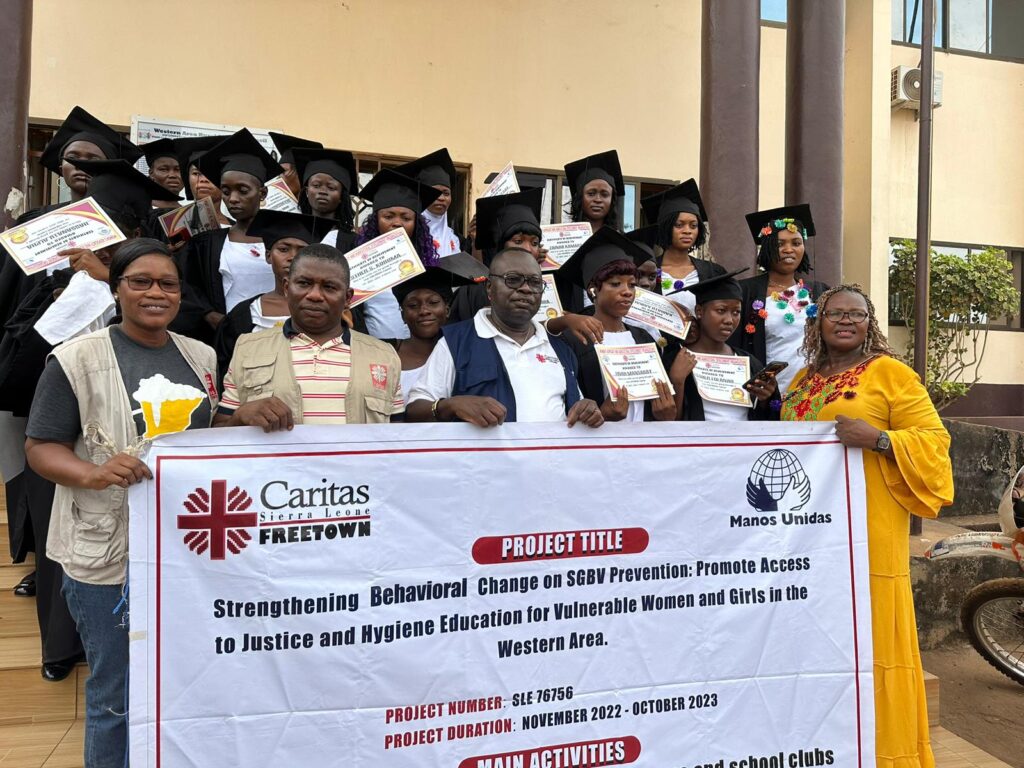
On Wednesday 20 March, we celebrated a highly esteemed occasion at Waterloo District Hall. Sponsored by Caritas Freetown, Mano Unidas and managed by WAADO, a community-based advocacy group that seeks to empower vulnerable groups such as youth, women, girls, street children, orphans, and the rural poor in the Waterloo community. We commemorated 25 female students with experience of SGBV and GBV-related matters, inhibiting their personal and educational development. Based in the Rural Urban District Waterloo, the students recently graduated from their skills training programme in Catering and Seamstress work – as a testament to their hard work Caritas Freetown has supplied the students with Start-Up kits to invigorate entrepreneurship and independence through their craftmanship. So far, this one-year project has positively impacted over 20 communities transforming and enhancing the lives of women and girls in vulnerable communities. Director of WAADO Doris Fatima Webber emphasised the importance of women’s entrepreneurship in women and girls in Sierra Leone she expressed, “This programme has been very impactful, as an advocacy group, we have rehabilitated women and girls to be modern ambassadors, for those vulnerable to attain essential skills to sustain themselves.” We received a testimonial from a Catering Graduate from the programme Mary K. Bangura who had an extensive journey reaching this point she expressed her gratitude for the transformational impact this project has had on her she stated “Before this programme, I was just passing the streets relying on men and my family to provide for me, I’m so thankful for Caritas for this opportunity, with this experience, I am going to use these skills to educate other girls to make an impact.” Here at Caritas Freetown, we celebrated International Women’s Day with the theme ‘Invest in Women Accelerate Progress’ not only on the 8 March but for the entire duration of the month, we as an organisation must raise awareness of these current issues that women and girls are facing in our society today and how we can combat these issues through the power of collaboration and cohesiveness with other organisation groups. Together, we can ensure that women and girls can build a better nation by equipping them with relevant knowledge and skills so that we can see a brighter tomorrow for our future leaders and changemakers.
Fr. Peter Konteh Advocates for Action Against Rising Drug Addiction Among Youth on Caritas Sunday
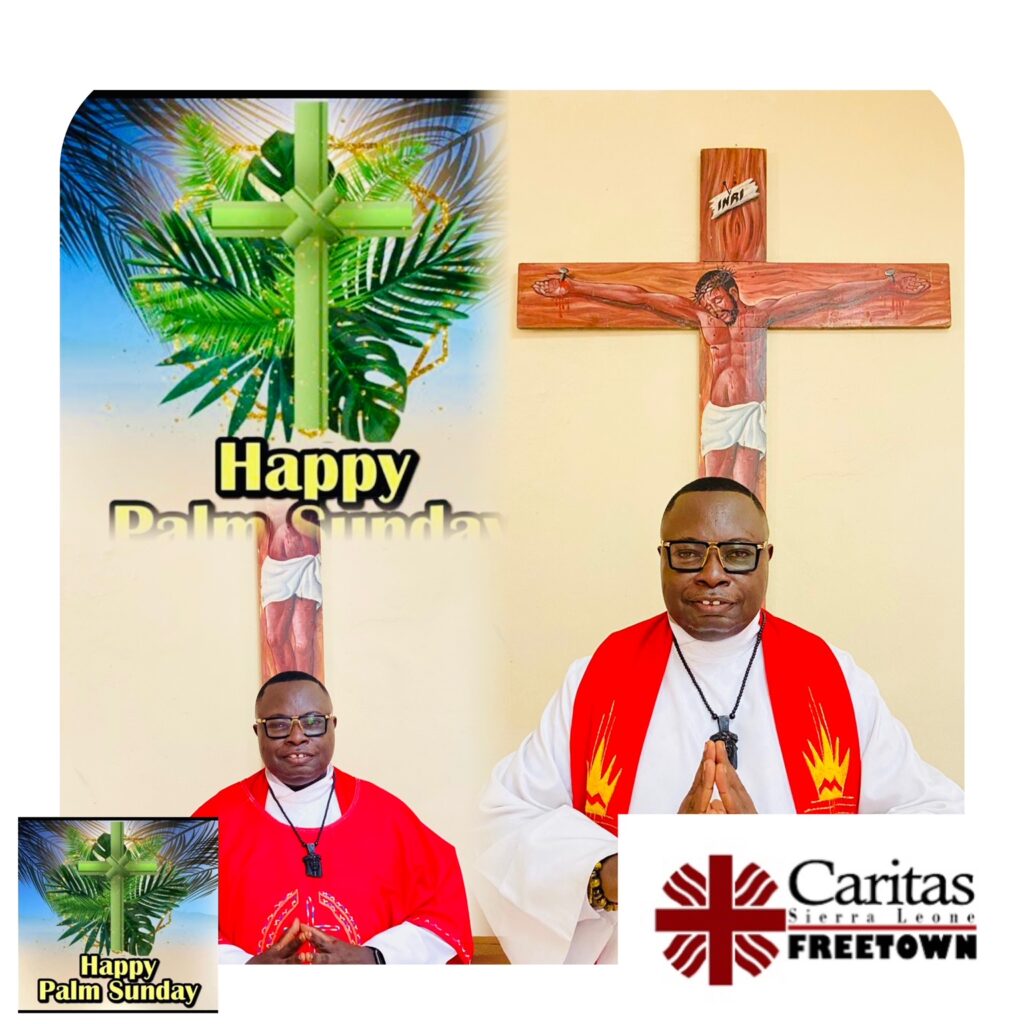
Serious Times Call for Serious Measures: Sierra Leoneans Urged to Unite in Face of Kush Crisis”No Laughing Matter:Putting Politics Aside: Sierra Leone Urged to Address Kush Crisis with Unity and Resolve” Fr. Peter Konteh Advocates for Action Against Rising Drug Addiction Among Youth on Caritas Sunday In a poignant address marking Caritas Sunday, Fr. Peter Konteh, the esteemed Executive Director of Caritas Freetown, delivered a heartfelt message calling for urgent action to address the alarming surge of drug addiction among the youth in our community. Against the backdrop of escalating concerns over the prevalence of dangerous substances like Kush, Fr. Konteh emphasized the critical need for collective efforts to combat this pressing issue and provide vital support to those affected. Speaking with compassion and unwavering commitment, Fr. Konteh underscored the gravity of the situation, acknowledging the unfortunate reality of many young individuals falling prey to the vicious cycle of addiction due to a myriad of underlying factors. He stressed the importance of approaching the issue with empathy and understanding, steering the narrative away from judgment towards a narrative of support and empowerment for those struggling with substance abuse. “As we gather on this solemn occasion of Caritas Sunday, we must confront the harsh realities faced by our youth, many of whom have become ensnared in the grip of addiction,” remarked Fr. Konteh. “We must stand together as a community, extending a hand of compassion and solidarity to those in need, and working tirelessly to address the root causes that perpetuate the cycle of substance abuse.” Fr. Konteh highlighted the multifaceted challenges driving the surge of drug addiction among the youth, including socioeconomic disparities, peer pressure, trauma, and stress. High levels of poverty, limited opportunities for advancement, and the influence of peer groups can push vulnerable youth towards seeking solace in dangerous substances as a coping mechanism, perpetuating a cycle of dependency that hampers their well-being and potential for a bright future. Moreover, the trauma inflicted by conflicts, violence, and adverse experiences further compounds the vulnerability of young individuals, making them susceptible to the allure of drugs as a temporary escape from their harsh realities. Fr. Konteh urged for a comprehensive approach that delves into the root causes of addiction, including addressing the supply chain that facilitates the proliferation of harmful substances within our communities. “In the spirit of Caritas, let us embrace a culture of compassion, resilience, and empowerment as we stand in solidarity with those affected by addiction,” Fr. Konteh passionately urged. “Together, we can forge a path towards recovery, healing, and a renewed sense of hope for our youth, guiding them towards a brighter, drug-free future.” As the community marks Caritas Sunday, Fr. Peter Konteh’s message serves as a poignant call to action, reminding us of our shared responsibility to protect and nurture the well-being of our youth, and to create a society founded on principles of compassion, support, and unity in the face of adversity. Through collaborative efforts and unwavering dedication, we can pave the way for a healthier, more resilient community where every individual has the opportunity to thrive and fulfil their potential.
